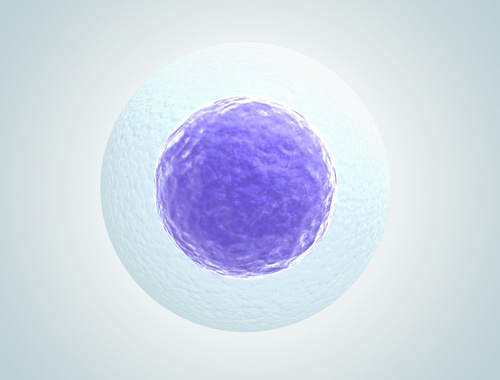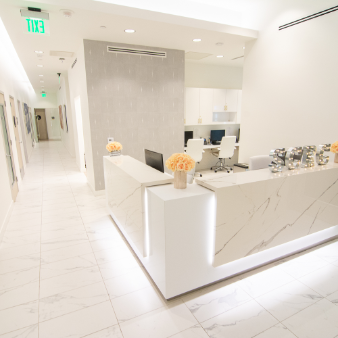

Egg retrieval is a pivotal moment in your IVF journey. There has been a lot of lead up to this day, and you may be feeling quite a mix of emotions: excitement, anxiety, or even fear. If this is your first cycle, you may have many questions about the preparation, procedure and recovery. Understanding exactly what will happen through the entire egg retrieval process can help to set your mind at ease.
How can I prepare?
In the weeks prior to your egg retrieval appointment, your ovaries will have been carefully monitored to watch the development of your follicles and eggs. When we have determined that the follicles are almost mature, you will be given instructions for the HCG (human chorionic gonadotropin) trigger injection. This hormone will help the final maturation of the eggs, and will also trigger the release of eggs from the follicles. It is important to time the shot within the indicated window, as egg retrieval will be scheduled for the peak fertile time after ovulation: generally 35 to 36 hours after the trigger shot. In order to prepare the day before and the day of your egg retrieval, you should:
- Not eat or drink after midnight, or 8-10 hours before your appointment: This is because the egg retrieval procedure takes place under anesthesia. You will be able to eat once you have recovered, but you may be slightly nauseated. Make sure you have some crackers or other light, comforting foods on hand for those first hours after you get home.
- Wear comfortable clothing: We will give you a hospital gown once you get here, but you will want something soft and loose to wear home.
- Don’t wear scents, nail polish, jewelry or contacts
- Bring a photo ID
- Arrange for a ride home: You won’t be allowed to drive yourself after the procedure, so make sure that there is someone available to take you home. Unless you are using frozen donor sperm, your partner may be asked to contribute a sperm sample at this appointment, so many couples find it most convenient to travel together.
- Plan to arrive at least an hour early: This will give you enough time to fill out the necessary paperwork and prepare for the procedure without needing to rush.
What happens when I get to the clinic?
Knowing precisely what to expect can help to settle your nerves before the procedure. The usual flow for a patient on egg retrieval day is straightforward:
- After you have signed in, you will meet with the nurse. Together you will go over the procedure and post-op instructions, and you will be asked to verify your identity with your photo ID and sign release forms.
- Next, you will change into a hospital gown and hair net to prepare for retrieval and will be shown to the procedure room.
- Right before the procedure, you will meet with your anesthesiologist/nurse anesthetist for a brief health history and to answer any questions you may have about sedation, and you will sign the anesthesia consent forms. An IV is started, and you will receive medication for intravenous sedation. From this point on you won’t remember anything else until you wake up in recovery.
How long does it take?
There may be a lot of build up to egg retrieval, but the procedure itself is relatively short and quite simple. Everybody is different, but the average length of a typical egg retrieval procedure is approximately 20 to 30 minutes. How long your particular retrieval takes will depend on the accessibility of your ovaries and the number of fully mature follicles. Between preparation, the procedure, and recovery, you can expect to be at the clinic for 1 ½ to 2 ½ hours total, and you should plan to take the rest of the day off.
During egg retrieval, the doctor uses a transvaginal ultrasound probe, similar to the ultrasound that is used to monitor your ovaries throughout your cycle. The ultrasound gives the doctor a direct view of the ovary so that they can see the exact position of every follicle. This allows the maximum possible number of eggs to be retrieved during the procedure.
Once all of the eggs have been retrieved, you will be brought to the recovery room to wake up and rest before being released to go home.
Is it painful?
Thanks to the anesthesia, you will not be conscious, and you won’t feel any pain during the procedure. The anesthesia is not full general anesthesia, but is similar to the sedation used for wisdom tooth extraction.
Will I bleed afterwards?
A small amount of vaginal bleeding is not uncommon, and not something to worry about. The amount may be similar to your period or less. The spotting may range in color from red to brown.
What is the recovery process?
Recovery after your egg retrieval is usually quite quick. Most patients are ready to go home after an hour or two. Because of the anesthesia and the pain medication you will take after the procedure, you may experience some mild nausea. You might want to limit your intake to crackers and fluids until you feel better. If you are not nauseated, feel free to eat whatever you like, though spicy foods may irritate your stomach.
The medications used during retrieval take about 24 hours to fully leave your body. You will feel quite tired and should rest for the remainder of the day, but you should be able to resume your regular activity the day after your retrieval.
You will have been given antibiotics through your IV during the retrieval to prevent infection. If there are any other medications you should take after the procedure, you’ll be given specific instructions about how and when to take them. Some abdominal cramping and bloating is normal and can last for up to a week. Most post-retrieval pain is easily managed with over the counter painkillers. Your doctor will advise you about whether you should refrain from intercourse for a little while.
Finally, egg retrieval can be a very emotional day for many patients, and both the hormones and the anesthesia can heighten the natural emotions of the day. Be sure to give yourself the time and space you need to process the experience.
{{cta(‘a65b5d46-984b-424f-8ee8-3107ded8598e’)}}



